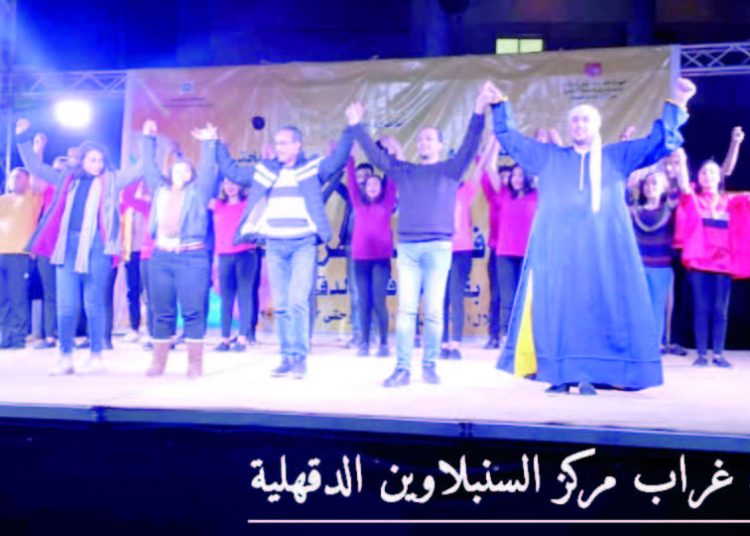By Hagar Saeed
The idea of a mobile theatre that moves closer to the people and erases the boundaries between people and their audience has been developed by the Egyptian Ministry of Culture as part of its plan to spread arts and culture to the remotest villages across the nation.
The ministry launched the first mobile theatre caravan activities on January 31 in in Al-Asmarat, a low-cost housing project in Cairo’s Muqattam neighbourhood, according to Mohamed Moneer, the media advisor to the Ministry of Culture.
There are six troupes who will be touring the governorates of Cairo, Beheira, Daqhalia, South Sinai, Aswan and Assiut to reshape awareness and spread enlightenment through various creative programmes including all forms of culture and art ,” Moneer told The Egyptian Gazette.
The troupes carry fully-equipped theatres with electricity, water services, sound and light equipment, air-conditioned control rooms, and four tents designed as changing rooms for artists. The theatre stage is about 37.5 square metres,” he said.
“By bringing numerous cultural activities and artistic performances to areas which have the least access to arts and cultural activities, the project aims to invigorate the creative scene across the nation and achieve cultural justice,” Moneer added.
He noted that the mobile theatres were completely made by Egyptian hands. They were implemented in co-operation with the Ministry of Defence and Military Production and Helwan Diesel Engines Company,
Factory 909.
The first performance staged in Al-Asmaarat was accompanied by a ceremony marking the launch of the event. The ceremony was attended by the Minister of Culture Inas Abdel-Dayem, head of the General Organisation of Cultural Palaces Ahmed Awaad and his deputy Hisham Atwa.
“There has been much interaction from the local audience. Residents watched from balconies, cheered and shared their feedback. Children were extremely happy. It is such a rich experience and a good source of positive energy too,” Hisham Atwa, deputy head of the General Organisation of Cultural Palaces, told this
newspaper.
“People in every part in this country should have access to arts and culture,” Atwa said, adding that the mobile theatres initiative is part of the Ministry of Culture’s efforts, in recent years, to bridge the cultural gap between people living in big cities and those in remote governorates. He referred to other initiatives adopted by the ministry for that purpose.
At the beginning of last year, the ‘People of Egypt’ programme was launched by the ministry of culture to organise cultural activities aiming at creating bridges between children and youth living in remote govern orates and those inside the capital and the Delta region. The programme organises, for example, field trips to
museums and archaeological sites across Egypt for school children and youth living in remote governates to show them the riches outside their neighbourhoods.
Since its launch, the ‘People of Egypt’ initiative has conducted 80 visits to archaeological sites, 312 artistic workshops and presented 20 artistic performances across the venues operating under the General
Organisation of Culture Palaces.
In February 2020, a festival for music and singing was staged at the Dendera Temple in Qena, Upper Egypt. the festival, which was the first to be held in Qena Governorate, included a large line-up of Egyptian musicians such as Medhat Saleh, Ali el-Haggar, Dina el-Wedidi , Mai Farouk and Mohamed Mohsen as well as bands like Massar Egbary, Black Thema, and Wust el-Balad.
“The festival was a great success and attracted around 40,000 people. There are plans for similar festivals in various Egyptian governorates,” Atwa said.






Discussion about this post